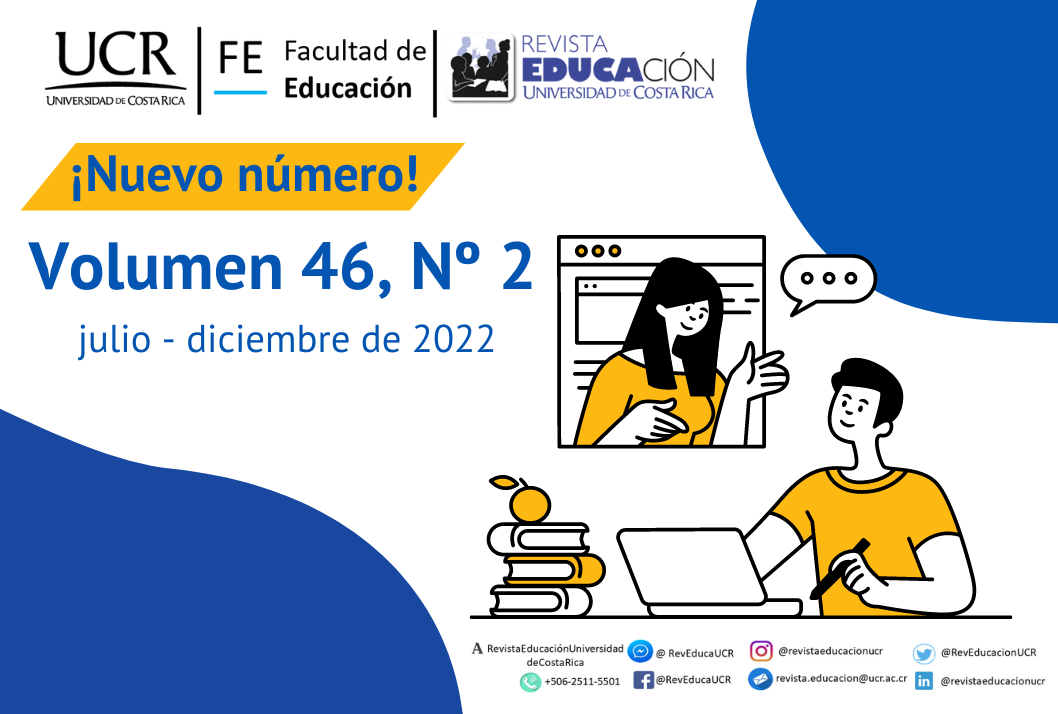Resumen
La emergencia sanitaria a causa del COVID-19 ocasionó cambios inesperados en los procesos educativos a nivel mundial; implicaciones que se presentan en este escrito a manera de reflexión, desde el ámbito internacional, nacional y, finalmente, desde el caso de la Policía Nacional de Colombia. El principal objetivo fue describir las implicaciones que tuvo la emergencia sanitaria a causa del coronavirus COVID-19 en el proceso educativo y de formación policial. Dicha información se obtuvo a través de una investigación cualitativa, por medio de revisiones documentales y encuestas aplicadas a dieciocho docentes y treinta y seis estudiantes de escuelas de policía y de instituciones educativas de la región (seis colegios de educación primaria y media de la localidad de Santa Rosa de Viterbo, dos colegios del municipio de Floresta y diez colegios de la ciudad de Duitama). Los resultados permitieron concluir los cambios y las necesidades en la educación frente a la ocurrencia del virus, en la que le correspondió a la comunidad educativa aprender sobre la adquisición y el uso de las tecnologías, lo cual se convirtió en un reto y en una tarea inmediata que las instituciones educativas tuvieron que aceptar y enmendar. El escenario que se planteó para la educación al pasar de la presencialidad a la virtualidad, obligó a cambiar la forma de realizar las actividades que normalmente desarrollaban docentes y estudiantes, y, en el caso de la educación policial, donde se deben cumplir características específicas dentro del programa de formación, resulta un gran desafío para la Dirección Nacional de Escuelas de la Policía Nacional de Colombia, de tal manera que, gracias a lo sucedido, se logra en gran medida fortalecer el sistema educativo para la institución y ofrecer nuevas posibilidades al estudiantado. Por otra parte, se evidenció la necesidad de incluir dentro de las políticas públicas un ajuste al sistema educativo tradicional, ya que la crisis sanitaria dejó en evidencia las falencias que se tienen en este aspecto.
Citas
Cómo citar
Rivera-Dueña, R., Casas-Forero, L. M. y Ávila-Camacho, F. Y. (2022). Implicaciones de la emergencia sanitaria causada por el coronavirus en la educación policial. Revista Educación, 46(2). http://doi.org/10.15517/revedu.v46i2.47598
Referencias
Álvarez, H., Arias, E., Bergamaschi, A., López, Á., Noli, A., Ortiz, M., Pérez, M., Rieble-Aubourg, S., Rivera, M., Scannone, R. y Viteri, A. (2020, mayo). La educación en tiempos del coronavirus. Inter-american development bank https://publications.iadb.org/publications/spanish/document/La-educacion-en-tiempos-del-coronavirus-Los-sistemas-educativos-de-America-Latina-y-el-Caribe-ante-COVID-19.pdf
Alvear-Izquierdo, H. F. (2020). Reflexiones de un servidor policial vivenciando la emergencia sanitaria del COVID-19. Cienciamerica, 9(2). 146-153 http://cienciamerica.uti.edu.ec/openjournal/index.php/uti/article/view/306
Cárdenas Zea, M. P., Carranza Quimi, W. D., Plua Panta, K. A., Solís García, M., & Morales Torres, M. (2021). La educación virtual en tiempos del COVID-19: Una experiencia en la maestría de Educación. Revista Universidad y Sociedad, 13(3), 243-251. https//rus.ucf.edu.cu/index.php/rus/article/download/2094/2078/&usg=AOvVaw0h2T5uEOYJWEK-jQDv1fT4
Céspedes, E. A. (2020, 07 de abril). La evidencia de la formación policial en el perú, en tiempos de COVID-19. https://www.academia.edu/42658455/Evidencia_de_la_Formacion_Policial_en_el_Per%C3%BA_en_tiempos_de_COVID_19
Duart, J. M. (2020, 05 de abril). ¿Estudiar por internet?. Universidad de Cataluña. https://www.dontknow.net/punto-de-vista/josep-maria-duart-montoliu-estudiar-internet-si
Educación 2020. (2020, abril). Educar en tiempos de pandemia. http://educacion2020.cl/wp-content/uploads/2020/05/OrientacionesPedago%CC%81gicas_E2020.pdf
Estadísticas de la situación digital de Colombia en el 2020-2021. (2021). Branch. https://branch.com.co/marketing-digital/estadisticas-de-la-situacion-digital-de-colombia-en-el-2020-2021/#:~:text=El%20crecimiento%20digital%3A%20enero%202020,%2C%20espec%C3%ADficamente%20en%20un%201.9%25.
García-Aretio, L. (2021). COVID-19 y educación a distancia digital: Preconfinamiento, confinamiento y posconfinamiento. RIED. Revista Iberoamericana de Educación a Distancia, 24(1), 09-32. http://revistas.uned.es/index.php/ried/article/view/28080
Hargreaves, A. (2003). Replantear el cambio educativo: Un enfoque renovador. Amorrortu Editores España.
Kozak, D. (2017, 05 de abril). El cambio educativo siempre vendrá de la mano de los docentes. https://ined21.com/cambio-educativo-y-docentes/
Ministerio de las Tecnologías de la Información. (2020, 12 de octubre). ¿Cómo está el país en conexiones de internet? https://www.mintic.gov.co/portal/inicio/Sala-de-prensa/MinTIC-en-los-medios/151654:Como-esta-el-pais-en-conexiones-de-internet
Mizala, A. y Claro, M. (2020, 8 de mayo). La educación frente a la pandemia: la mirada a mediano y largo plazo es imprescindible. Universidad de Chile. https://www.uchile.cl/noticias/163204/la-educacion-frente-a-la-pandemia
Morales, P. A. (2013). Metodología de Educación a Distancia. Ediciones USTA https://repository.usta.edu.co/bitstream/handle/11634/23250/Metodolog%C3%ADa%20de%20eduaci%C3%B3n%20a%20distancia.pdf?sequence=1&isAllowed=y
Müller-Plotnikow, S. (2020, 01 de enero). OMS: ¿Qué es una emergencia sanitaria internacional?. DW. https://www.dw.com/es/oms-qu%C3%A9-es-una-emergencia-sanitaria-internacional/a-52217051
National Comprehensive Center. (2020). Student Engagement in Online Classes: Tips for Teachers Based on Trauma-Informed Approaches and Social and Emotional Learning (SEL) Strategies. https://compcenternetwork.org/sites/default/files/Tip%20sheet%20for%20online%20teaching.pdf
Organización Mundial de la Salud [OMS]. (2020). Coronavirus. Organización Mundial de la Salud. https://www.who.int/es/health-topics/coronavirus
Policía Nacional. (2013). Proyecto Educativo Institucional. https://www.policia.gov.co/sites/default/files/tomo_4-1_proyecto_educativo_institucional.pdf
Policía Nacional del Paraguay. (2020). Docentes del ISEPOL se capacitaron en el uso y diseño de herramientas de gestión educativa virtual. https://www.isepol.edu.py/noticias/docentes-del-isepol-se-capacitaron-en-el-uso-y-diseno-de-herramientas-de-gestion-educativa-virtual-66
Prensky, M. (2001). Digital Natives, Digital Immigrants. On the Horizon. https://www.emerald.com/insight/content/doi/10.1108/10748120110424816/full/html
Radio Nacional de Colombia. (2020, 12 de mayo). ¿Cambiará el sistema educativo tras la pandemia? https://www.radionacional.co/cultura/cambiara-el-sistema-educativo-tras-la-pandemia
Revista Semana. (2020. 27 de marzo). Los retos que plantea el coronavirus para la educación en Colombia. https://www.semana.com/nacion/articulo/los-retos-que-plantea-el-coronavirus-para-la-educacion-en-colombia/659653/
Rieble, S., Viteri, A., Vásquez, M. y Arias Ortiz, E. (2020, 04 de mayo). COVID-19 y la gran apuesta del aprendizaje desde casa: ¿funcionará para todos?. Banco Interamericano de desarrollo. https://blogs.iadb.org/educacion/es/aprendizajedesdecasa/
Significados. (2016, 06 de diciembre). Sistema educativo. https://www.significados.com/sistema-educativo/
Wikipedia. (2020, 25 de octubre). Implicación. https://es.wikipedia.org/wiki/Implicaci%C3%B3n



